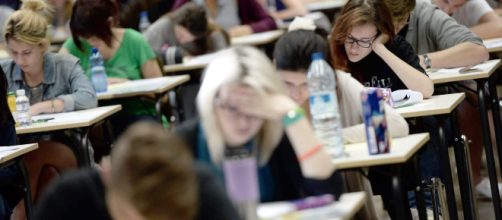Concerns about the tougher structure of the re-vamped GCSE examinations has subsided considerably as the proportion of students meeting the pass mark has increased. Education reforms have left the exams as a tougher challenge for students this year in comparison to previous cohorts. However, this year's pupils have risen to the challenge set to them, and the pass rate has risen.
New GCSEs have prompted worries all year
The overhaul of the tradition marking system, which has always previously run from A* to U, has meant that students this year have received marks ranging from 9 to 1.
About 90 percent of the GCSE examinations taken by pupils this year were part of the tougher format. GCSE reforms have generated more complex content being made part of the syllabus, as well as less coursework being available to students which have placed further importance on final exams.
The proportion of students meeting the pass mark has increased by 0.5 percent with this cohort, making the overall pass rate of 66.9 percent.
In addition, while girls have continued to perform better than boys in their attainment at GCSE level, the disparity between boys and girls has decreased with boys making strides towards the girls' higher grades.
Amongst the more than half a million students who took GCSEs this year, only 732 entrants made a sweep of all top-grades, showing how difficult it is to achieve highly in this new syllabus.
Education reforms have shaken-up the system completely
The government intended these reforms to place the level of education in England, Scotland and Northern Ireland on par with the most rigorous schooling formations in the world, such as Finland and Singapore.
There has been a government-led drive to increase the standard of education across the UK, for the economy to benefit when these children taking the tougher GCSEs eventually enter the workforce.
However, it is not all good news as a spokesperson for the National Education Union has tempered over-exuberance about this year's results, stating that "success is being rationed" due to fewer students receiving top grades this year.
In addition, students are warning that the new formation of the GCSEs has placed significantly more stress on them and has been damaging for their mental health.
Due to there being little or no past papers available for students to make use of this year, many felt unprepared for their end of year examinations, meaning that they experienced a lot of anxiety in the build-up to their exams.
This year's cohort may leave the public wondering whether academic success is worth the mental adversity young people are being put through to achieve highly.


